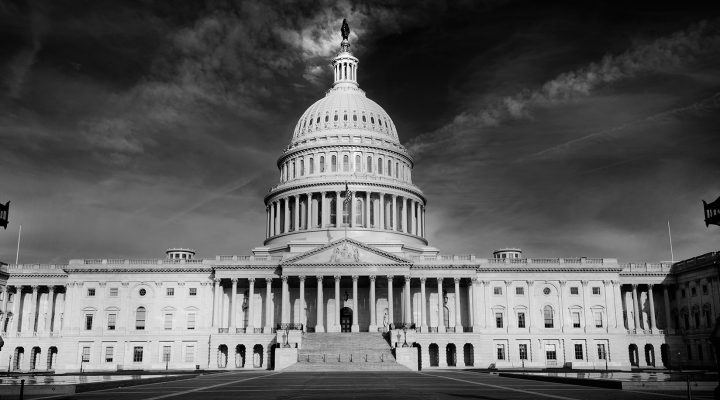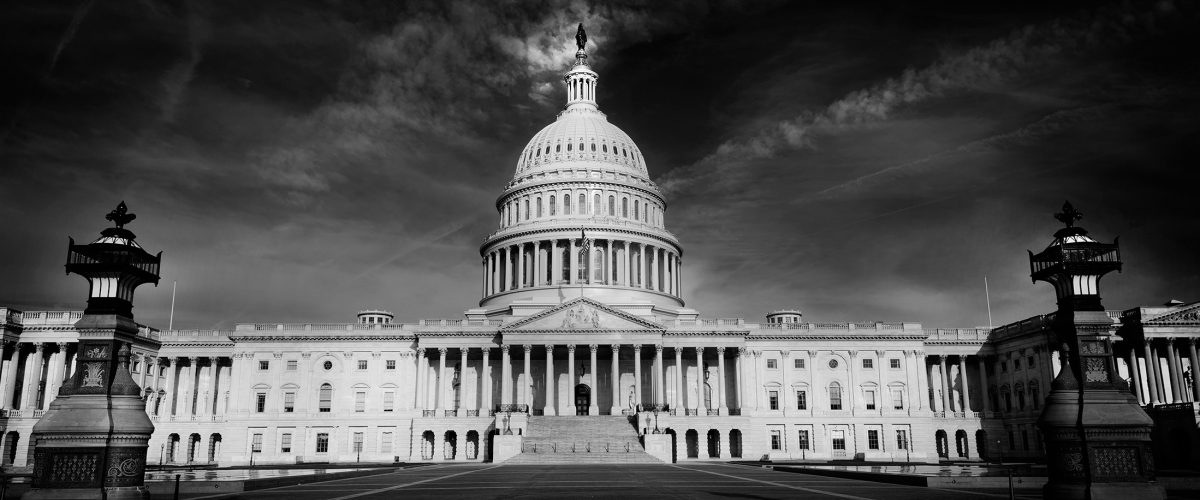Americans overwhelmed by the prospect of authoritarianism under Donald Trump must not abandon hope or succumb to inaction in the struggle for democracy, activists cautioned in a webinar organizing faith-based political opposition to the incoming administration.
The lure of just hunkering down is understandable, said Lisa Sharon Harper, a minister and president of the Freedom Road consulting group. She said Trump’s 2024 presidential victory was dispiriting for many people of faith who spent untold hours speaking out, participating in voter registration drives, raising money, writing devotionals and circulating petitions.
“My greatest temptation has been to believe the foundational lie, which is that my actions don’t matter,” she explained. “I don’t have agency. And then the second temptation is to live in a projected future that has not happened yet. We have heard so much about Project 2025 that, as soon as the election was lost, I started to project that future into the present thinking. But we are not yet living in a future that is designed for us by the Heritage Foundation.”
Harper joined religious and civil rights activists Guthrie Graves-Fitzsimmons and Adam Taylor in the Jan. 6 discussion about the buttressing role of faith in political dissension and upcoming strategies for opposing some of Trump’s cabinet appointments in the U.S. Senate. The event was cosponsored by Faithful America, Faith in Democracy, Freedom Road, Interfaith Alliance, Sojourners and Unitarian Universalists for Social Justice.
‘Don’t obey in advance’
“I know after the election many of us felt lost, like there was nothing we could do,” said moderator Jennifer Butler, executive director of Faith in Democracy. “It’s been a very painful time and discouraging, and it can be tempting to think there is nothing we can do and to feel powerless. But we have to be careful not to obey an autocrat in advance.”
“We have to be careful not to obey an autocrat in advance.”
Butler administered an online poll of the roughly 1,500-member audience, finding 7% to be hopeful and energized in the present moment, 36% feeling determined, 23% being overwhelmed but finding strength in community, 31% feeling frightened and the remainder feeling stuck with no idea how to move forward.
“An autocrat wants us to feel overwhelmed and depressed and despondent, like there is no ability to hope and no possibility to make change. I know a number of us have been taking time to mourn and to deal with our feelings, but what we want to do is talk about how we can make change,” Butler said.
Hope is generated by solidarity, determination to change and knowing where and how to weigh in, she said. “We can’t change the past, but we can change our future. As long as we continue to strive for our vision, hope is not lost. Hope is not a feeling. It’s not a warm fuzzy thing. Hope is a commitment.”
Faith also is an essential element in the movement because it connects activists to the present and to the knowledge that losing a battle doesn’t mean losing the war, Harper said.
“I remember the faith that rooted the Southern freedom movement. That movement took place in the context of an authoritarian government captured by the Klan and white citizens councils across the South. When Rosa Parks sat down on that bus and refused to obey the authoritarian regime in Montgomery, Ala., there was no Civil Rights Act at that moment. There was not even a Voting Rights Act. There was no protection of their rights, their jobs, their families, their lives, none. But faith called her not to obey the lie of Jim Crow.”
The same could be said about Martin Luther King Jr., John Lewis, Diane Nash and other activists whose faith guided their actions, she said. “Of course there was bound to be pushback, but we have a secret weapon: We have our faith. We have our God who is committed to protecting the vulnerable ones. All God needs is for us to exercise our agency.”
And that agency is desperately needed as the reality of the Trump presidency approaches, said Graves-Fitzsimmons, director of policy and advocacy with Interfaith Alliance.
“The new Congress, the incoming Trump-Vance administration and the ultra-conservative Supreme Court together represent a trifecta of tribulation for the most vulnerable among us, but now is not the time to retreat or retire from the cause of social justice inspired by our diverse faith traditions,” he urged.
Congress in disarray
One reason not to feel powerless is the disarray of the MAGA Congress, he explained. “You already saw the infighting start this past Friday when Mike Johnson lost the first ballot for Speaker of the House because of defections with his own party. In the weeks ahead, a single Republican defection in the House could tank a bill if Democrats remain united in opposition.”
In the U.S. Senate, pro-democracy advocates need win over only four Republican senators to block Trump’s most egregious cabinet nominees, he added. “The comically unqualified Matt Gaetz was already replaced as Trump’s pick for attorney general, proving there are indeed still Republican senators who haven’t been fully reduced to Trump sycophants.”
Other picks that have drawn intense criticism include Pete Hegseth as secretary of defense, Tulsi Gabbard as director of National Intelligence and Kash Patel as FBI director. “The MAGA margin to enact evil is razor thin, and public outcry can make a meaningful difference,” Graves-Fitzsimmons said.
“The MAGA margin to enact evil is razor thin, and public outcry can make a meaningful difference.”
The president-elect also has a track record of defeats from his first term in office, including his failure to implement the full version of the Muslim ban.
“The huge outcry from the American people at the beginning of the first Trump administration stalled the ban’s implementation, shaped public opinion and limited the harm faced by the most vulnerable among us,” he said. “And let’s not forget that Trump did not force Mexico to pay for a border wall, his signature campaign promise when he ran for president in 2016.”
Graves-Fitzsimmons urged people of faith that understand advocating for justice isn’t going to be easy. “American history is not a straight line from oppression to freedom. It’s taken every generation to do its part and face the changing political landscape. As we remember the political violence on January 6 four years ago, I’m also reminded that faith-rooted social justice advocates in other countries have faced political violence and authoritarianism and often much worse conditions than what we face here in the current U.S. political landscape.”
Nominations battle
The first challenge for those advocates is the coming nomination battles in the U.S. Senate whose members must be convinced to reject nominees who are clearly unfit and even dangerous in their proposed roles, said Taylor, president of Sojourners.
“One of the consistent themes across many of the nominations is that many of them have what appears to be not only a clear relationship with Trump, but also a kind of primary commitment to protecting Trump’s interests and not necessarily the nation’s best interests. But we know there is a process in place that is a part of the constitutional commitment of a separation of powers and of checks and balances.”
He cited Patel as an example. “He’s particularly worrisome, to say the least, because he has written a book in which he has a list of those political appointments he has pledged to seek retribution against, who are political opponents to Donald Trump. He has pledged to jail members of Congress who investigated the violent attack on the U.S. Capitol on January 6.”
Another is Hegseth to lead the department of defense, he added. “We are particularly concerned about the many reports of alleged abuse of alcohol and harassment of female colleagues. He has shown a great deal of bellicosity toward the Muslim world, he has opposed women and LBGQ people in the military and has shown a great deal of political extremism.”
It will take direct lobbying on Capitol Hill to challenge the appointments, but also grassroots advocacy, Taylor advised.
To encourage that participation, organizers have launched a petition drive and created a “make the call” tool streamlining contact with senators’ offices.
“Calling our senators is critical because, if you’re a constituent, they pay attention to those calls. They need you,” Taylor said. “They need your moral support to stand firm. A lot of them have profound misgivings about what’s going on, but they need to know they have people in their corner and they need you to have their back.”
Related articles:
Harsh times offer progressives an opportunity to restore Christianity’s good name | Opinion by Marv Knox
Save this column and don’t say we didn’t warn you | Opinion by Mark Wingfield
Trump supporters’ silence about his threat for vengeance | Opinion by Brad Bull
‘Don’t muzzle yourself in advance,’ trio of religion experts advises






